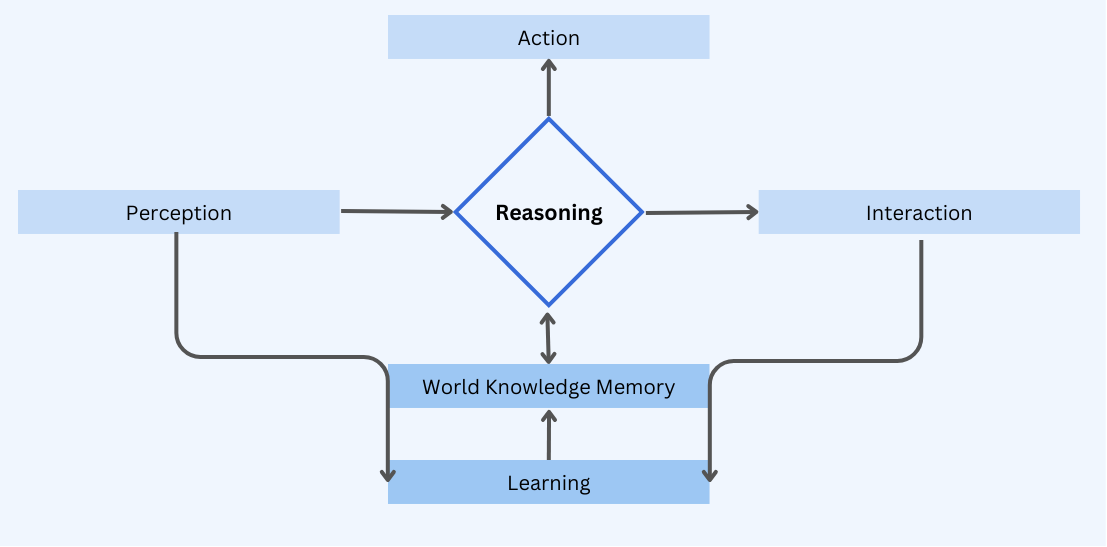Top Advice On Deciding On An AI Agent Website For Business
Wiki Article
Ten Ways That Businesses Can Utilize Ai Agents To Automate The Invoice Processing Of Financial Operations
AI agents can be employed in a number of ways to automatize invoices as well as financial operations.
1. Automated extraction of data
AI agents extract key details from invoices such as:
Name of the vendor the invoice number, date and name.
Optical Character Recognition, Natural Language Processing, and Payment Terms can be used for identifying lines, tax details as well as payment terms.
2. Intelligent Invoice Matching
AI verifies invoices in the following ways:
They may be matched against contracts, purchase orders or delivery receipts.
Finding out if the data is inconsistent and highlighting any exceptions that need to be examined.
3. Real-Time Invoice Validation
AI assures accuracy:
Check the invoices carefully for any mistakes.
Confirming compliance with rules of business and tax laws.
4. The Streamlined Approval Procedures
AI helps to automate the approval process
Routing invoices for approval according to rules that have been predefined.
To reduce delays, send automated reminders for approvals.
5. Automated Payment Scheduling
AI schedules payments by:
Optimize your payment plan by analyzing due dates in order to maximize the early-payment discount.
By making sure that your payments are timely to save yourself penalties for late payments.
6. Fraud Detection & Prevention
AI increases security by:
Finding unusual patterns like inflated prices or unidentified vendors.
This will enable you to investigate the invoice further.
7. Integrating Accounting Systems
AI syncs data by:
Automated updates of financial systems like ERP and accounting software.
Eliminate manual data entry to ensure accuracy across every system.
8. Intelligent Cost Allocation
AI categorizes expenses by:
Allocating invoice amounts to appropriate cost centers or project codes.
Maintaining compliance with the internal budgeting rules.
9. Analytics and reporting in real-time
AI generates insights from:
Dashboards can be provided with statistics like processing time as well as unpaid invoices, cash outflows.
Offering predictive analytics in order to detect patterns.
10. Reduced Manual Work
AI can reduce human intervention by:
Automate repetitive tasks such as the tracking of invoices, approval tracking and status updates.
Employees can now concentrate on the strategic financial plans.
AI agents automate invoice processing, decreasing errors, boosting efficiency and ensuring faster turnaround time. This results in better cash management and vendor relationships. See the expert AI agent for Billing Collections for website advice including AI agent for human resources, AI agent for tax management, AI agent for supplier contact management, AI agent for employee onboarding, AI agent for supplier management, AI agent for threat intelligence gathering, AI agent for password expiry notifications, AI agent for contract renewal notifications, AI agent for dispute resolution, AI agent for launch campAIgns and more.

Ai Agents - 10 Ways To Decrease Fraud And Control Risk
AI agents can assist businesses spot fraud and cut down on the risk of fraud by identifying it early.
1. Real-Time transaction monitoring
Artificial Intelligence (AI) agents are able to detect suspicious activity in the following areas:
Monitoring financial transactions continuously in real-time.
The flagging of transactions that depart from the normal, for example large payments, fast transactions, or unusual timings.
2. Anomaly The detection
AI can assist in identifying abnormal behavior
Using machine learning algorithms to analyse historical transaction data and detect outliers.
Recognizing patterns that could indicate fraud. For instance, frequent inability to pay or sudden increases.
3. Predictive Risk Assessment
AI can forecast future risk by:
Analyzing historical data to assess the possibility that specific risky financial transactions or fraud will occur.
Transactions or accounts that pose high-risk based on prior incidents could be flagged.
4. Biometrics using behavioral data
AI agents can analyze user behaviour by:
Monitoring user interaction with financial platforms.
Inconsistent or unusual behavior could be a sign of identity theft, and unauthorised access.
5. Automated Alerts for Suspicious Activity
AI gives instant notifications through:
Notifying risk managers and compliance officers when suspicious activity has been discovered.
Triggering automated workflows like accounts locking out and fraud investigations.
6. Credit Scoring and Fraud Risk
AI helps assess customer creditworthiness through:
The ability to predict the probability of default or fraud by studying the financial history of customers.
Businesses can reduce risk regarding the payment and lending by offering dynamic credit scores. These scores are adjusted based on the real-time actions.
7. Natural Language Processing (NLP) for Document Fraud Detection
AI can detect fake documents using:
Scan invoices, contracts and other financial documents to look for any errors or forged signatures.
NLP algorithms can be utilized to identify inconsistencies between text and the context, which can be a sign of fraud.
8. Screening of the customer and vendor
AI helps to reduce fraud:
AI-driven analysis is a great tool to conduct background checks on clients and vendors by analyzing public information and financial history and social media profiles.
Identifying high-risk entities and requiring a closer look before completing transactions or contracts.
9. Compliance Monitoring
AI ensures compliance with the law by:
Always checking the financial operation to ensure compliance with current regulations and standards.
Automating audits to ensure compliance and reporting aids businesses to find and prevent fraud in the financial sector.
10. Machine Learning to improve Fraud Detection
AI agents get better with time, based on:
Machine learning can be a very effective instrument to assist you in adapting and improve as new fraud techniques and techniques are developed.
Continuously train on new data to improve fraud detection and reduce false positives.
By incorporating AI in fraud detection and risk management, businesses can keep a step ahead of potential threats, safeguard their financial assets, and ensure compliance, eventually improving their security and efficiency. See the pro AI agent for Service Level Agreement Monitoring for blog info including AI agent for customer communication, AI agent for vendor management, AI agent for prospect segmentation, AI agent for supplier management, AI agent for software development, AI agent for self-service portal management, AI agent for contract management, AI agent for employee onboarding, AI agent for purchase order optimization, AI agent for account inactivity monitoring and more.

Ten Ways That Businesses Can Utilize Ai Agents To Adhere To Compliance And Regulations
Here are 10 ways AI agents can help your company comply with rules and regulations that govern financial operations.
1. Automating the Reporting of Regulatory Information
AI agents improve reporting through:
Automatically produce compliance reports required by regulators (e.g. SEC filings or tax reports).
Making sure that all required documents are submitted on time, thus reducing the possibility of a fine for late filings or non-compliance.
2. Monitoring of transactions in real-time
AI can help ensure compliance with anti-money laundering regulations (AML) as well as Know Your Customer (KYC), through:
Continuous monitoring of financial transactions to identify suspicious activities.
Flagging transactions with unusual or large payments, or those that require more examination.
3. Automated audits and validation of data
AI agents help audits.
Automated checks are performed to verify compliance with internal policies, and external rules.
Verifying and completing financial data. Alerting to any mistakes or discrepancies which could cause compliance issues.
4. Maintaining the accuracy of data Security & Privacy
AI can help meet data protection regulations (e.g., GDPR) by:
Encrypting sensitive transaction and customer information ensures they are securely saved and transferred.
Automatically managing consent preferences, and ensuring the privacy of customers' data is used only in compliance with the law.
5. AI Fraud Detection
AI is a tool that helps to prevent fraud through:
Continuously analyzing transaction patterns for suspicious activities or irregularities which could be in violation of financial rules.
Machine learning algorithms can be employed to predict and identify fraud risk. They can help reduce the possibility of breaking the financial or legal standards.
6. Regulatory Change Detection
AI can assist businesses in staying up to date by:
Monitor changes to relevant financial regulations, such as taxes and reporting obligations.
Automated updating of internal procedures and systems in order to stay compliant with regulatory changes.
7. KYC Compliance (Know Your Customer Know Your Customer) KYC Compliance (Know Your Customer Know Your Customer)
AI assists in complying with:
Automating KYC compliance by automating the process of customer identification.
The analysis of client data can help identify money laundering through comparing the behavior against risk profile.
8. Risk Management and Assessment
AI enhances compliance by:
Assessing and predicting compliance risk continuously by analyzing historical data including financial transactions, other elements, etc.
Recommending actions to mitigate identified risks and ensure adherence to regulatory frameworks.
9. Analysis of contract and document documents
AI boosts compliance by:
Reviewing agreements, contracts or any other legal document to verify compliance with regulatory requirements.
Aiding businesses in avoiding violations of legal requirements by automatically flagging clauses that could violate them.
10. Tax Compliance Automatization
AI eases compliance with tax law by:
Automating the calculation and filing of tax returns, ensuring that businesses follow the tax laws and deadlines.
Examining the details of transactions to determine tax breaks, exemptions and other tax advantages.
AI agents will assist businesses comply with the regulations and minimize risk of making mistakes. AI is a powerful instrument in the field of finance because of its ability to automatize, track and adapt to changing requirements. Check out the best AI agent for Procurement Expense Tracking for blog recommendations including AI agent for marketing, AI agent for cash flow management, AI agent for accounts payable, AI agent for subscription services, AI agent for variance analysis, AI agent for vendor performance, AI agent for lead generation, AI agent for ticket closure notifications, AI agent for performance management, AI agent for payroll auditing and more.
